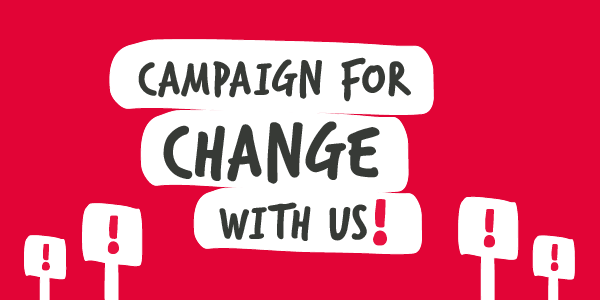Every year Less Survivable Cancers Awareness Day (LSCAD) occurs on 11 January. It provides a time to reflect on those who are affected by these six deadly cancers (brain, pancreatic, lung, stomach, oesophageal and liver) but it is also about action.
Unfortunately, we know that progress to improve outcomes in these cancers has been slower than desired over the past few decades. This must change.
We’re a founding member of the Less Survivable Cancers Taskforce (LSCT) which is made up of charities that represent the six cancer types. This year, the Taskforce held events in three parliaments (England, Scotland and Wales). These events highlighted the shocking five-year survival rates of these cancers across the UK compared to other countries of similar wealth and income levels.
Advocates who attended the events shared their thoughts on the events and what they’d like to see happen next.
The importance of these events
At the drop-in events, advocates from the different charities shared their experiences with politicians.
Our campaigner Heather joined us at the Holyrood event and said, “Attending events like this and speaking to Members of the Scottish Parliament (MSPs) face to face is so important. It provides them the opportunity to relate the statistics they’re being told to a real person and learn how devastating brain tumours can really be.”
Meanwhile, both Madelaine and Owen noted the sense of passion in the room. Madelaine said, “It was a privilege to witness the enthusiasm and high turnout of MSPs.”
Owen added “I was encouraged by the level of care and compassion that exists amongst MSPs seeking to improve diagnoses and outcomes for those with less survivable cancers, including brain tumours.”
Similarly, Annabel, our advocate in Wales, said, “It was really encouraging to see so many Members of the Senedd (MSs) at the drop-in event. By engaging politicians in this way, we were able to highlight the key issues in brain tumour care with real data and personal experiences.”
Debi, our advocate at Westminster, said “It was amazing meeting so many politicians, from all political parties, who were so interested in hearing about brain tumours. In particular, my personal experience when my daughter was diagnosed with an aggressive brain tumour in 2018 and her personal brave campaign to find a cure before her death aged 21. It was an incredibly emotional experience but also a positive one too.”
Overall, we spoke to more than 50 politicians across all three parliaments. We will be sure to follow up with them to share more details on the changes we and the Taskforce want to see to improve outcomes for these cancers.
Speaking in Scotland
At the LSCAD event in Scotland, our campaigner Victoria powerfully spoke in front of MSPs and other advocates.
Sharing her reasons for speaking, Victoria said, “The event at Holyrood was a positive and inspiring evening. I chose to speak at the event to highlight my experience of having a family member diagnosed with a brain tumour and spoke about the barriers we faced before diagnosis.
“The aim was to highlight the challenges many patients with a less survivable cancer and their families encounter and to give ideas on how we can change this. I truly hope that such events catalyse positive changes and highlight the need for funding for education and research.”

What needs to happen next?
After the event, our advocates shared what they would like to see and their thoughts on how we can succeed in improving survivability for the less survivable cancers.
Owen said “Scotland has an excellent track record in health research, innovation and treatment delivery. We must now leverage this in the quest for improved diagnostic pathways alongside raising awareness through sharing patient experiences.”
Meanwhile, Heather said, “I hope that we can make positive steps toward continuing a dialogue with the government about what needs to change to improve brain tumour diagnosis experiences for future patients.”
Madelaine concluded by emphasising that “The opportunity to hear from fellow advocates, MSPs, medical professionals and charity representatives is invaluable to emphasise and understand the urgent need for tangible action in tackling the six less survivable cancers. Collaborating with the five other charities delivers a unified and direct message that further effort is needed to improve the worrying statistics and quality of life for those affected by these cancers.”
Next steps
We’ll be working closely with the other Taskforce members to make sure the changes our community needs to see actually happen. As a shared voice, we’ll continue to raise awareness of the gaps around outcomes and diagnosis times for these six less survivable cancers across the UK.

